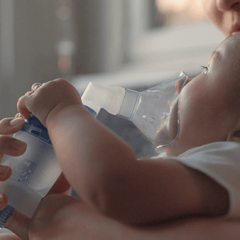UQ has received almost $29 million in National Health and Medical Research Council Project Grants - the fourth-largest share of the $447.5 million awarded to institutions across Australia.
UQ has also benefitted with an additional $792,983 in funding for the purchase of medical research equipment.
Deputy Vice-Chancellor (Research) Professor Max Lu congratulated the recipients and thanked the NHMRC for its continued support of Australian medical research.
"How best to prevent, cure and manage diseases and disabilities can only be found through rigorous research, and that process comes at a significant cost," Professor Lu said.
"UQ projects will focus on a diverse range of health issues, from establishing what causes mental health disorders to developing antibiotics for drug-resistant bugs.
"I thank our researchers for dedicating their careers to addressing the health and medical problems that currently reduce Australians' quality of life and life expectancy.
"I also thank the NHMRC, which supports the quest to find practical solutions to complex health issues."
Some of the 56 successful projects include:
- UQ's largest grant - almost $1.5 million - went to a team at the School of Population Health, which is studying the causes of common mental disorders such as anxiety, depression and substance use.
Led by Professor Jake Najman, the study follows a sample of 4000 persons from birth to 30 years of age to determine the environmental and genetic factors that lead to the onset and recurrence of the common mental disorders.
It will provide important information to influence the treatment and prevention of these disorders.
- Professor Melissa Little, from the Institute for Molecular Bioscience received $691,310 to study chronic kidney disease.
Chronic kidney disease is a growing burden to the health system.
The long-term health of kidneys is influenced by the number of functional units, nephrons, present in each kidney, a feature that is determined before birth.
If this number could be influenced, it may be possible to reduce the risk of kidney disease in later life for at-risk populations, including the Aboriginal community.
This study will investigate the stem cells that form the nephrons, how the process occurs and how it can be influenced.
- Also studying kidneys is Dr Karen Moritz from the School of Biomedical Sciences, who received a $628,797 grant.
Dr Moritz's aim is to understand how inadequate oxygen supply to the fetus during pregnancy can affect development of the kidney.
Many babies do not get enough oxygen whilst developing in the womb.
This can be due to a poorly formed placenta or the mother smoking.
This can interfere with normal growth and formation of the kidney. The team hopes the research may help babies get the best start to life.
- Dr Archie Clements, from UQ's School of Population Health, has been awarded two grants to study two deadly human pathogenic diseases.
His first award, of $936,321, will be used to analyse the risk of outbreak in Brisbane and Perth of a killer bacterium.
The bacterium, Clostridium difficile, causes inflammation of the large bowel that can lead to surgical removal of the bowel or death.
Clostridium difficile occurs in North America and Europe and an international epidemic strain has caused large outbreaks of severe and fatal cases in these continents.
This strain was identified for the first time in Perth, Australia in 2009.
Dr Clements' second grant, worth $346,273, will help plan more efficient parasitic worm control in the Philippines.
- $855,650 went to Professor Pankaj Sah and colleagues at the Queensland Brain Institute, who will investigate possible ways to forget or extinguish traumatic memories.
Professor Sah and Dr Francois Windels will work on the project over five years, with the aim of reducing anxiety and depression.
"There are two types of memories: the memories you create by learning, such as how to drive or car or speak a foreign language, and pathological memories which can result from a car accident, witnessing something on the battlefield, violence or abuse," Dr Windels said.
"The question we are trying to answer is: how do you forget traumatic memories?
"One possible treatment option is pharmacology, so looking at how drugs can help to reduce anxiety and depression.
"Another option is exposure therapy, which involves making the environment as safe as possible as the memory is recalled. In a sense you create a memory that tells you the particular situation is not dangerous."
- $726,284 went to Dr Sureshkumar Balasubramanian from the School of Biological Sciences, who aims to find out why DNA defects cause some genetic diseases.
In humans, several neuro genetic diseases occur due to expansion of trinucleotide repeats.
Although the diseases have been known for almost 20 years in humans several fundamental questions remains to be understood.
Several human genetic diseases that affect the nervous system occur due to expansions of the DNA repeats in the genome.
Dr Balasubramanian's team will use a combination of cutting edge technologies such as systems biology and genomics to uncover the common principles and use them to devise novel therapeutic strategies.
Dr Balasubramanian said the studies would lead to a better understanding and effective management of repeat expansion associated genetic defects.
- $689,784 went to a team at UQ's Institute for Molecular Bioscience, which is developing new antibiotics for drug-resistant bacteria.
Many bacteria have developed new resistance mechanisms meaning that most common antibiotics can no longer protect patients from serious, life-threatening infection.
Led by Professor Matthew Cooper, the project will convert two existing antibiotics into a more powerful antibiotic that targets resistant bacteria.
Media: Penny Robinson at UQ Communications (07 3365 9723, penny.robinson@uq.edu.au)



